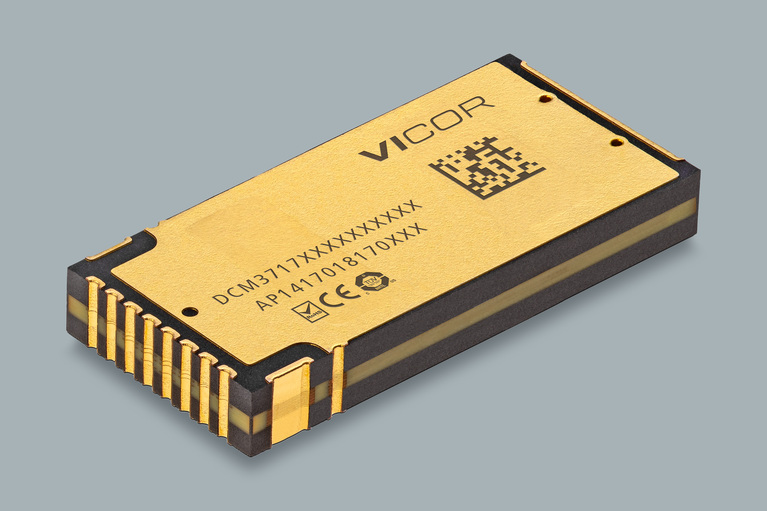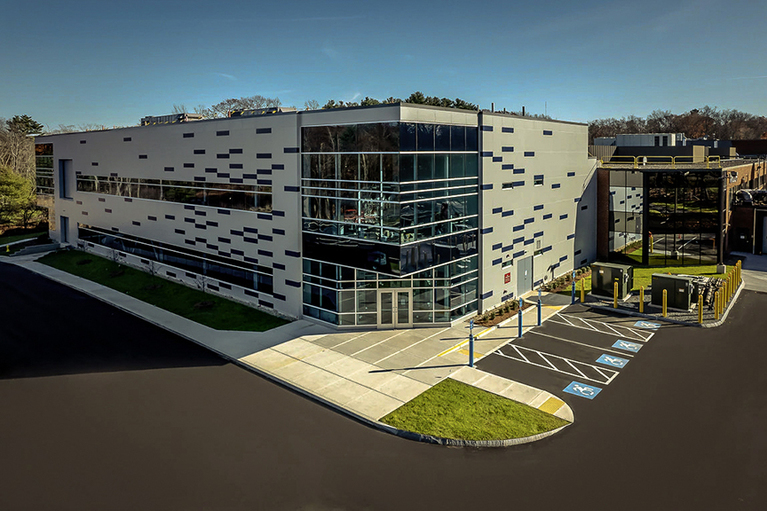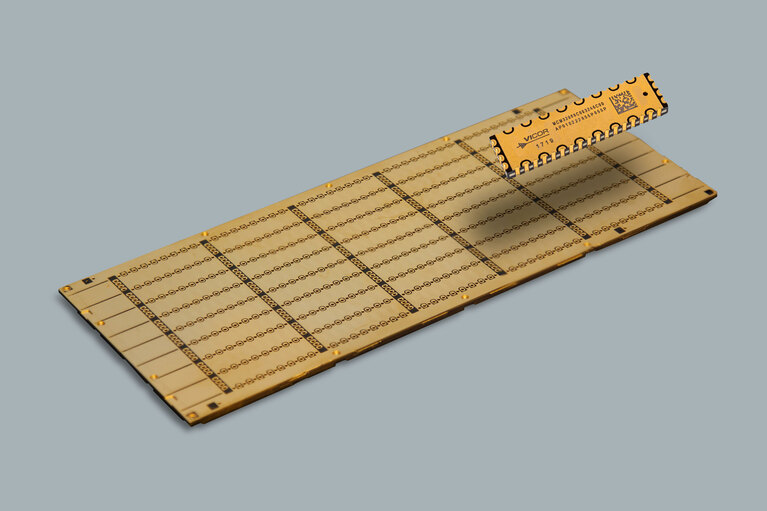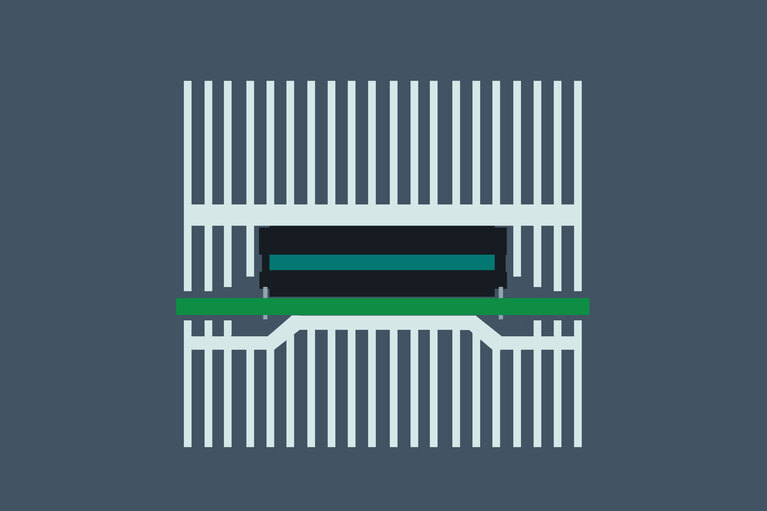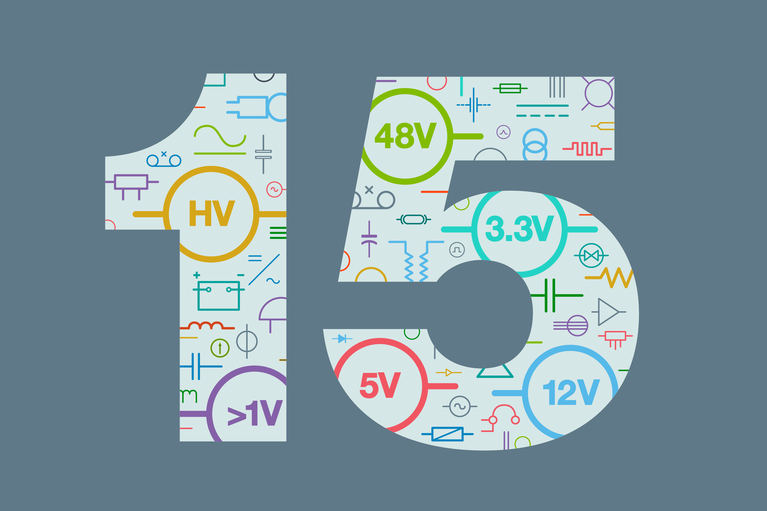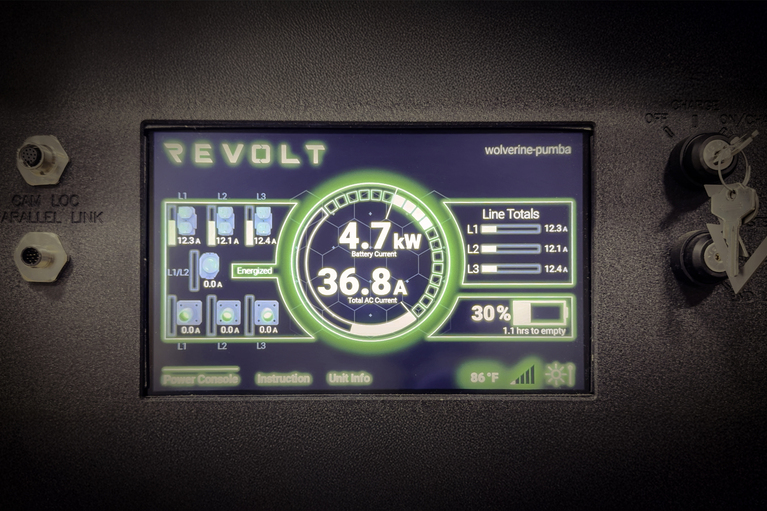
Optimizing DC-DC converter stability: AC and transient analysis in simulations of source impedance effects
Learn how to optimize DC-DC converter stability through AC analysis in the frequency-domain and transient analysis in the time-domain
With Vicor’s new facility, the company seeks to fulfill its vision of providing self-contained, high-performing modular power systems that can meet today’s demands for ever increasing efficiency and power density.
The ChiP (converter housed in package) fabrication facility will produce power modules in the United States using process steps analogous to semiconductor wafer fabs.
To solid fanfare and with participation from both Vicor management and Massachusetts state officials, Vicor’s new “ChiP Fab” opened on May 18, 2022 in historic Andover, MA.
With this new facility, the company seeks to fulfill its vision of providing self-contained, high-performing modular power systems that can meet today’s demands for ever greater efficiency and power density.
Vicor's newly renovated facility in Andover expanded its manufacturing floor capacity by 45%, completing a new 90,000 square-foot addition.
And thanks to the site’s vertically integrated nature, Vicor will look to manufacture those products with haste.
“Our new ChiP fab integrates all of the process steps necessary to manufacture high-density power modules in wafer-like panels with short cycle time and flexible capacity,” said Mike McNamara, Vicor’s vice president of operations.
The Vicor ChiPs to be manufactured at the company’s Andover site are complete high-power modules manufactured in “panels” that are analogous to semiconductor wafers. The panels are then separated into individual "chip-scale" components much in the way of silicon chips.
Vicor pioneered a proprietary panel-based manufacturing that uses a standard-size PCB analogous to a silicon wafer in a highly automated approach to production.
The difference is that instead of an isolated semiconductor component, the result is a complete module, replete with numerous individual semiconductors and passives. The module is the equivalent of the brick converter of yesteryear, only smaller, more efficient, and more power dense.
An example is the DCM3717, a 750W regulated 48V-to-12V converter with a regulated power output.
Vicor's DCM3717 enables customers in data center, automotive, and industrial markets to quickly deploy high-performance 48V power delivery for legacy 12V load.
This ChiP converter features a 97% peak efficiency and is available in a 37 x 17 x 7.4mm surface-mounted package.
Vicor DCMs are able to flourish even in the toughest environments. This is evidenced by their deployment in the VideoRay’s series of Remote Operating Vehicles (ROV), which operate seaborne search missions at depths of up to 305 meters.
A key feature of the ChiP solution is that the converter’s magnetics are integrated into the device.
Per Vicor documentation, fabricating the energy storage inductor or transformer directly into the power module maximizes performance, and allows designers to breathe easy knowing that the specialized task of magnetics optimization has been pre-executed. In addition, this integrated quality enables engineers to reduce the overall power system footprint in their designs.
With greater and greater amounts of power being handled by ever smaller devices, power density is quickly increasing, making heat management a fundamental issue. Vicor’s ChiPs place heat-intensive devices on both the top and bottom of the module’s central PCB. Then, a thermally-conductive encapsulant transfers heat to each surface. This serves to effectively double cooling surface area relative to PCB footprint, the company says.
The ChiP solution for heat dissipation.
In the image above, the ChiP module is mounted onto the OEM device’s PCB. Again, the top and bottom of the ChiP both dissipate heat to the heatsink assembly, enabling the module to manage far more power for a given footprint. That, in turn, allows for an increase in power density.
This article was originally published by EEPower.
Optimizing DC-DC converter stability: AC and transient analysis in simulations of source impedance effects
Learn how to optimize DC-DC converter stability through AC analysis in the frequency-domain and transient analysis in the time-domain
15 technical challenges to consider and conquer when designing a 48V power delivery network
To help better prepare for your 48V migration, consider the following 15 challenges as you embark on your first 48V designs
ReVolt – Technical Q&A
ReVolt is cleaning up Hollywood's emission problems today and next will address construction sites, emergency response and events with portable DC power
How ReVolt leverages Vicor technology for carbon-neutral film production
Vicor’s power converters to provide clean, mobile, and always-on electricity
